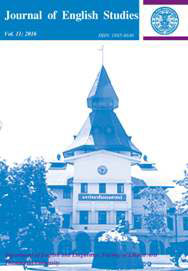EFL Learners’ Attitudes toward Intercultural Communicative Language Teaching and their Intercultural Communicative Competence Development
Main Article Content
Abstract
Intercultural communicative competence (ICC) is seen as one
of the key competences in the 21st century, so one of the ultimate
goals in English language training programs is to educate learners to
become intercultural speakers who can deal with linguistic and cultural
complexity and take part in multicultural situations. However, the
integration of intercultural content into English language education is
still ignored in the Vietnamese context. This empirical study, therefore,
endeavored to integrate intercultural content into an English
communicative language course in order to explore EFL learners’
attitudes towards intercultural communicative language teaching (ICLT)
and their ICC development in the Vietnamese context. It involved
forty-seven EFL learners who were learning an intercultural
communicative language course at a foreign language center in
Ho Chi Minh City, Vietnam. Three research instruments, namely
questionnaire, language test, intercultural competence test and semistructured
group interview were employed to garner data. The
preliminary findings revealed that EFL learners’ attitudes towards
intercultural communicative language learning were positively changed,
and their ICC (both language competence and intercultural competence)
developed in similar patterns. This study is hoped to shed light to the
implementation of ICLT in the EFL context of Vietnam and other
similar contexts.
Keywords: Intercultural communicative language teaching, intercultural
communicative competence, EFL learners, Vietnamese
context


